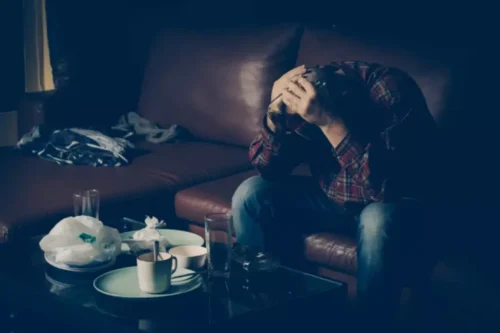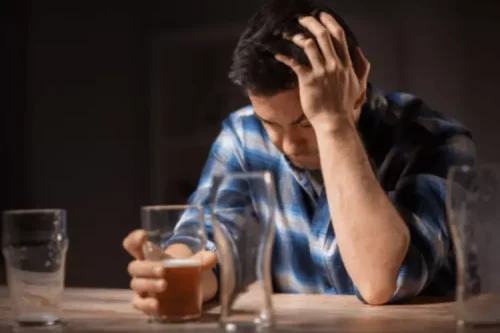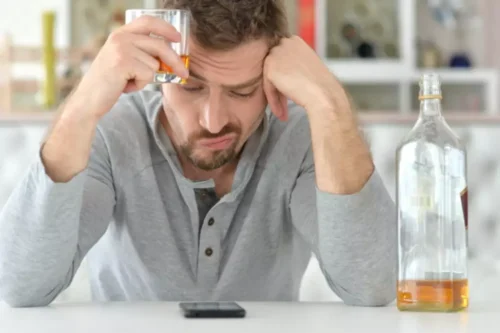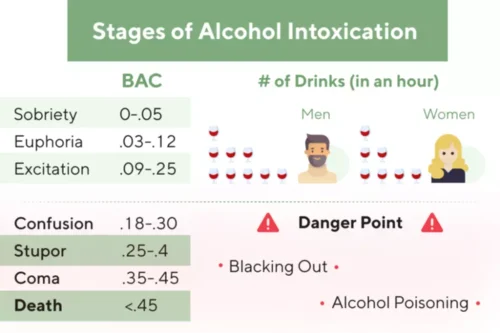
Alcohol can cause inflammation and damage to your liver when used heavily over prolonged periods. After stopping alcohol, inflammation what happens when you stop drinking in your liver caused by alcohol will subside. Most of this inflammation will be gone by your fourth week of abstinence.

Symptoms of Alcohol Withdrawal
- With heavy drinking, the liver and pancreas can become inflamed, leading to digestive issues.
- But if you’re committed to sobriety, it’s possible to achieve your goal.
- Stopping alcohol can seem daunting, especially if you use it frequently or if it is a central part of your social life.
- Even if you don’t drink a lot, the end of an alcohol-free month is a good time to reflect on your relationship with alcohol.
- And the risk of developing these cancers increases with the amount and duration of alcohol consumption, says Andrews.
New symptoms will develop, including clammy skin, nausea, jumpiness, insomnia, depression and loss of appetite. As new symptoms develop, they will become more and more intense as withdrawal progresses. Your doctor may also prescribe medications that can reduce withdrawal symptoms and cravings. Vivitrol (naltrexone), Campral (acamprosate), and Antabuse (disulfiram) have been FDA-approved to treat alcohol use disorder.
- As you experience fatigue from the strain of withdrawal, you will likely begin to notice that the sleep you get is far more restorative and that you feel much better when you wake up in the morning.
- Sim explains that your sleep pattern and quality will improve if you cut down on alcohol, so you’ll feel more refreshed when you get up in the morning.
A healthier heart
“Proper sleep helps us maintain physical, mental and emotional health, so it’s an important consideration,” she says. If you want to level up your health, cutting back significantly on alcohol yields several physical and mental health perks. Whether you’re challenging yourself to a no-drink stint (hello, Dry January) or considering cutting back on alcohol in general, your body can experience some real changes when you stop drinking. Here are some significant ways not drinking for 30 days or more can impact your body, mind, and overall health. You might think that a regular glass of red wine or other alcoholic beverages might be good for your heart. But that may not be true, or true only for light sippers (less than one drink a day).
Here’s what’s happens to your skin when you stop drinking alcohol for Dry Jan…

When you’re having a good time, you find it hard to stop, especially in the company of friends having the same amount. To stop drinking alcohol, you first need to understand your relationship with drinking. From there, you may need social support, consistent self-care, and new routines that can help redirect your mind. Even if you don’t drink a lot, the end of an alcohol-free month is a good time to reflect on your relationship with alcohol. Here’s a timeline of how your body might react after you stop drinking alcohol. They think it has something to do with how fast or slow your brain adapts during recovery.
- Spending quality family time or pursuing our hobbies becomes much more fulfilling than alcohol use.
- It becomes overexcited because there’s no more alcohol to slow it down.
- After contemplating your future with alcohol, you might also experience stronger than usual alcohol cravings.
- But you’ll need to be honest about how much you drink and how often.

Within 5 minutes, you’ll receive an email with these details – free of charge. They will become less intense, and symptoms will disappear one by one. Physical symptoms will be much better by a week after stopping for most people. Ultimately, drinking alcohol can cause dry skin, dark circles, decreased elasticity and skin flushing. First things first, the odd drink here or there isn’t going to break your body. But the unfortunate truth is alcohol is a hepatotoxin, meaning it specifically damages the liver, and this organ is intimately connected to your skin’s function.

This can lead to symptoms including anxiety, insomnia and irritability, and in more serious cases, hallucinations, seizures and potentially death. While it may not be something you perceptibly notice, one huge health benefit from stopping alcohol will occur by your third week of not drinking. Using alcohol frequently or consistently increases your blood pressure, leading to an increased risk of heart disease and stroke. As early as one week after stopping alcohol, you will likely begin to see benefits.